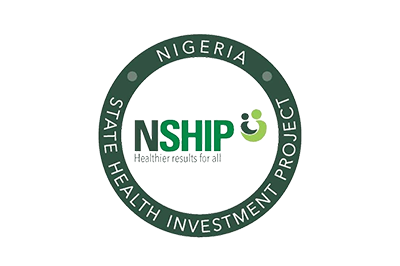self-determination. It forms an integral part both of the country's health system, of which it is the central function and main focus, and of the overall social and economic development of the community.
It is the first level of contact of individuals, the family, and community with the national health system bringing health care as close as possible to where people live and work, and constitutes the first elements of a continuing health care process.
In August 1987, the Federal Government launched its Primary Health Care plan (PHC), which President Ibrahim Babangida announced as the cornerstone of health policy and in 1990, PHC was devolved to the Local Government.
In August 1987, the Federal Government launched its Primary Health Care plan (PHC), which President Ibrahim Babangida announced as the cornerstone of health policy and in 1990, PHC was devolved to the Local Government.
Between 1986 and 1992, remarkable and innovative progress was made in the development of Primary Health Care, focusing on the Local Government Areas (LGAs), resulting in Nigeria being placed in the front rank of countries in the world that have advanced the process of equitably improving the health and quality of life of its people through primary health care.
In order to capitalize on these achievements, and sustain Federal assistance to the LGAs, the National Primary Health care Development Agency was established following the recommendation of a high level WHO review team through Decree 29 of 1992.
In order to capitalize on these achievements, and sustain Federal assistance to the LGAs, the National Primary Health care Development Agency was established following the recommendation of a high level WHO review team through Decree 29 of 1992.
The effectiveness of the PHC system and successes recorded at LGAs soon began to wane from the late 90s and this continued through into the new millennium to the point of virtual loss of community confidence in the system. It soon became evident the need to have PHC-Under-One-Roof, a concept that informed the current national health bill awaiting Presidential assent. Under this arrangement, each State of the Federation will have a State Primary Health Care Development Agency and at each LGA level, the Primary Health Care Authority. This is expected to address the existing administrative institutional lapses identified as a major factor militating against effective service delivery at PHC level.
In line with the national health policy and as part of its efforts at bringing qualitative health care delivery to the good people of Ondo State where they live and play, the State Governor (Dr. Olusegun Mimiko) officially signed into law the bill establishing the ‘Ondo State Primary Health Care Development Board’ (SPHCDA) in October, 2012 and went ahead to appoint the first Executive Secretary of the Board. The State Government also put in place a state-of-the-art ‘PHC Board Secretariat’ at Oke-Eda, Akure.
The SPHCDA has among its statutory functions the coordination of PHC activities in the LGAs. The State Governor has at different fora, expressed his administration’s commitment to make Ondo State PHC delivery a benchmark for other States in Nigeria and beyond. The official commissioning of the complex and the unveiling of the Permanent Secretary is to take place soon.
With the takeoff of the SPHCDA, it is expected that PHC in Ondo State will witness a transformational rebirth that will restore its lost glory and bring succor to the good people of Ondo State.
With the takeoff of the SPHCDA, it is expected that PHC in Ondo State will witness a transformational rebirth that will restore its lost glory and bring succor to the good people of Ondo State.
The aims and objectives of the Nigeria State Health Investment Project (NSHIP), is to increase the delivery and use of high impact /effective maternal and child health interventions and improve quality of care at selected health facilities in the participating states.
GOALS HIGHLIGHT:
- IMPROVE MATERNAL AND CHILD HEALTH INDICES:
- IMPROVE ANTE-NATAL
- IMPROVE DELIVERY & HEALTH FACILITY
- INCREASE IMMUNISATION COVERAGE
- FACILITATE HYGIENIC ENVIRONMENT
- PROVIDE MINOR SURGERIES
Ondo State is one of the eight states implementing NSHIP in Nigeria, and as such cemented their active membership by establishing MODIFIED PERFORMANCE BASED FINANCING (PBF) a new model of approach to exercising and achieving the NSHIP goals.
The new approach is to counter the concepts that birth gaming or data inflation by incorporating a community base sampling method to assessing the community health workers as against the old method of register check.
Project Status:







